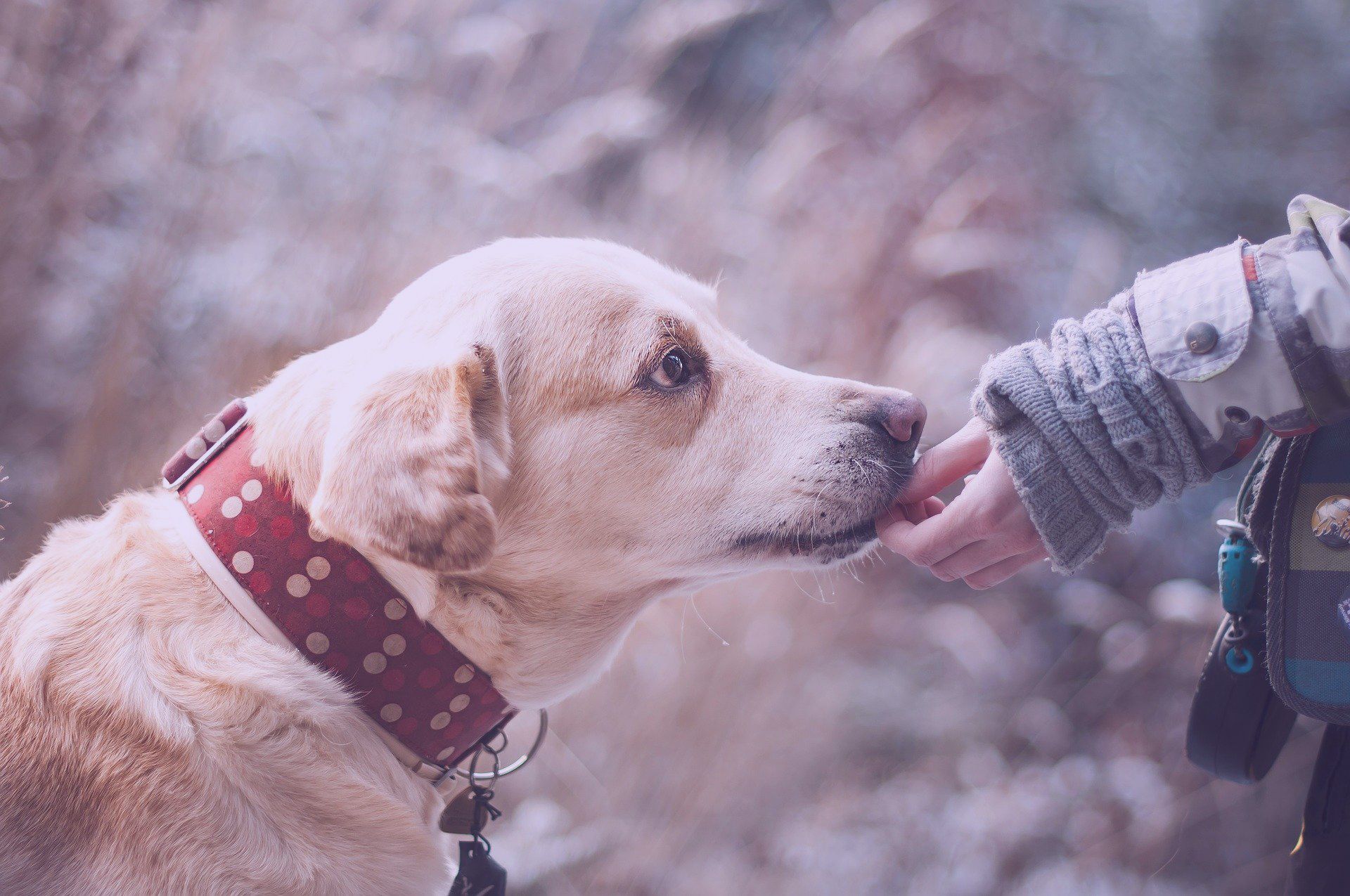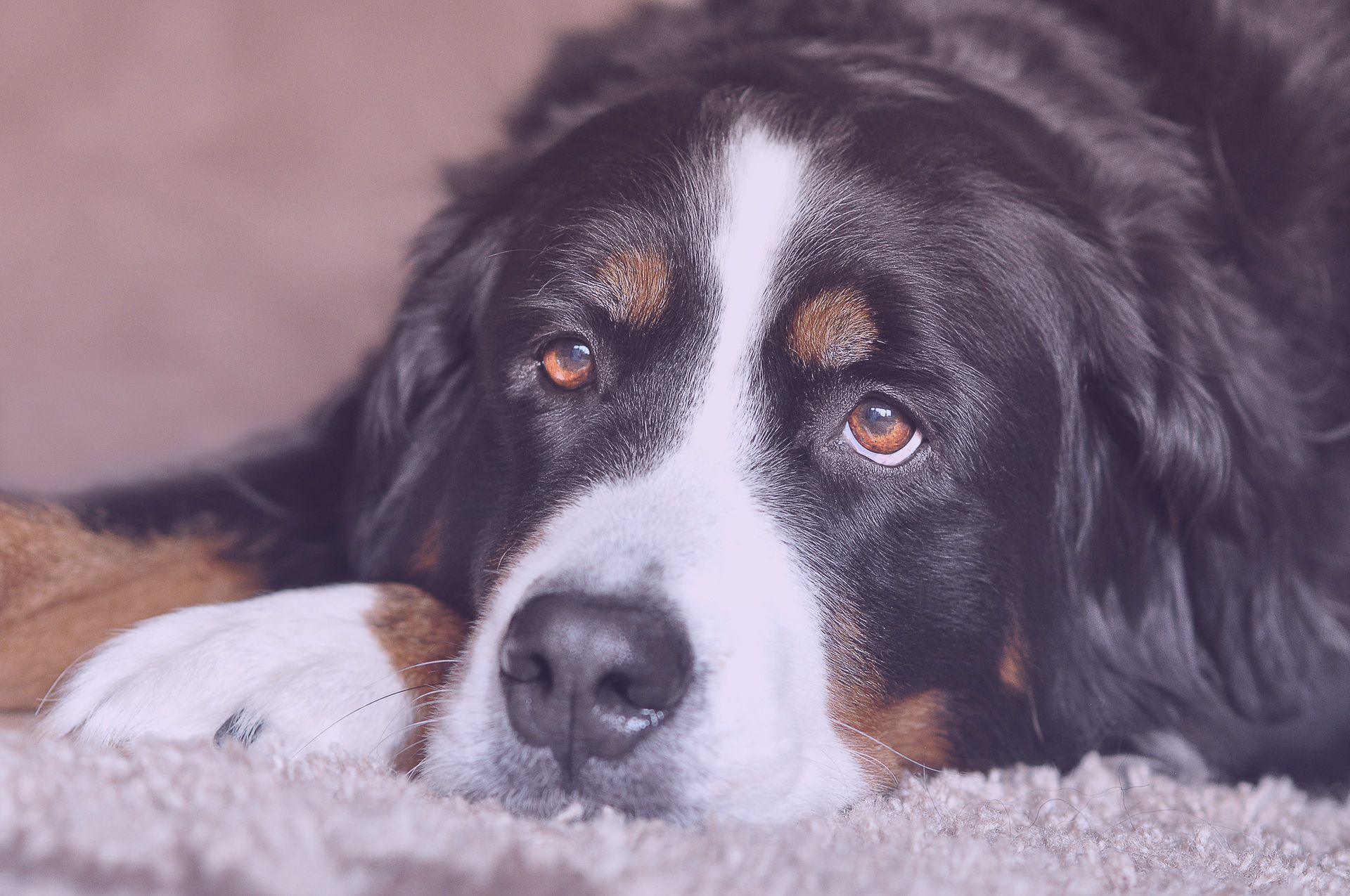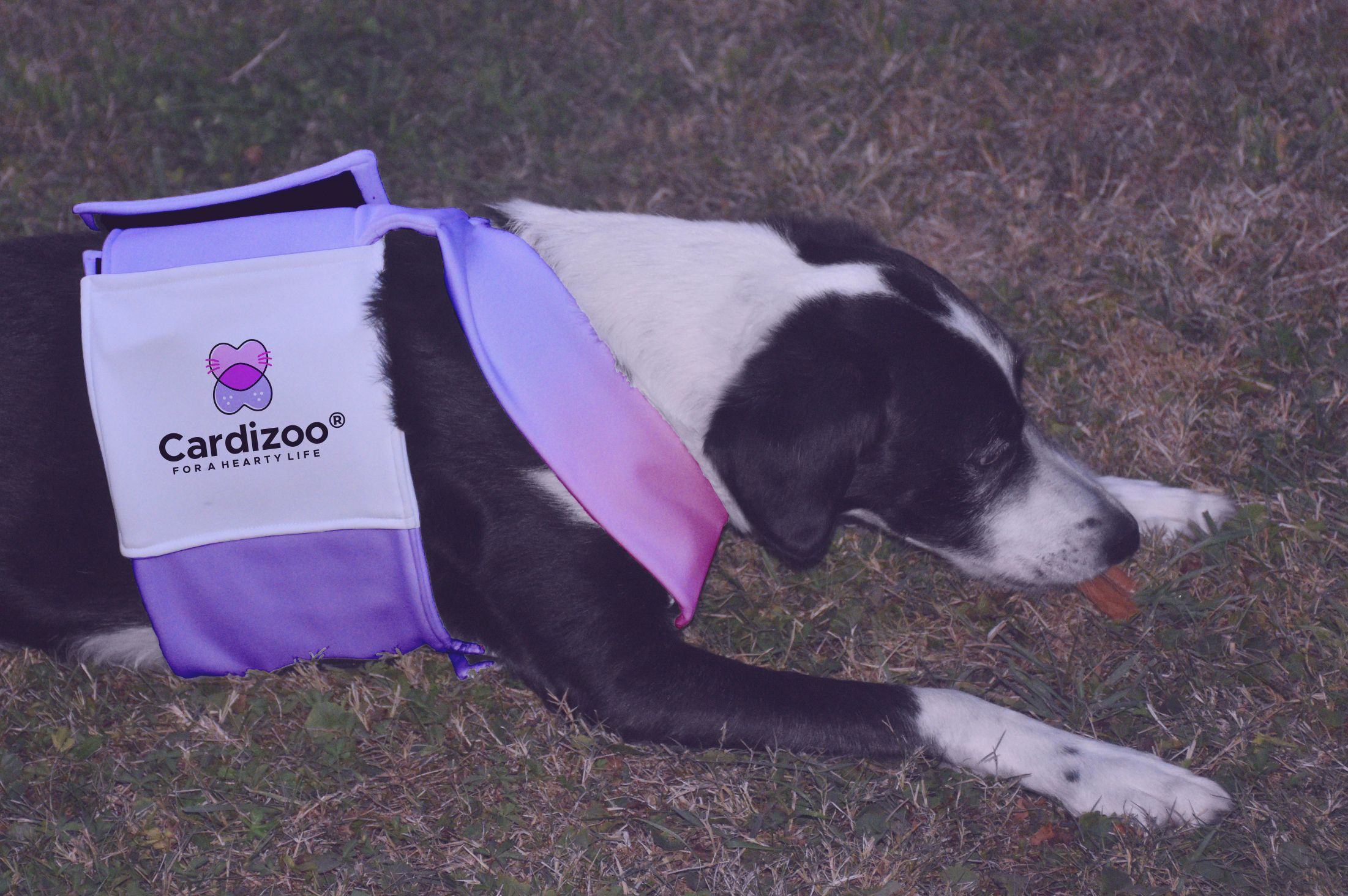Difficulty breathing in dogs
- Home
- Difficulty breathing in dogs

Take a deep breath!
Difficulty breathing in dogs
Does your dog pant hard several times a day and apparently for no reason? We are not talking about a dog that has exhausted itself physically, but of one that is in a resting and relaxed state. If your dog breathes calmly and evenly through his nose and has closed his mouth, his breathing is normal. If you look at his chest, it should move up and down as you breathe. In the resting and relaxed state, the normal breathing rate of your four-legged friend should be between ten and thirty breaths. If the breathing rate rises above thirty breaths per minute, one can already speak of an increased breathing rate.

Panting - does your dog pant normally or is there cause for concern?
In contrast to normal breathing, when panting, breathing is much faster and more audible, the dog's muzzle is open and the chest moves much more intensely. Panting can have many different causes - harmless as well as less harmless - and we are now going to get to the bottom of those causes!
Most of the time, panting is nothing to worry about!
It's completely natural for your dog to pant every now and then. Basically, one can say that panting is an expression of overheating, physical exertion, stress or fear. In these cases you do not have to worry too much, as the breathing of your four-legged friend will normally stabilize again within a short time.

When the temperatures rise ...
Your dog, unlike you, cannot tear its clothing - or in its case its fur - from its body when it gets way too warm outside. In addition, your four-legged friend has very few sweat glands and most of them are on their paws, which is why they can only regulate their body temperature to a limited extent via the glands. However, you can cool yourself off by panting. The inhaled air slides over the outstretched tongue, causing the saliva to evaporate on the tongue and thus cooling the whole body.

Everyone gets out of breath with physical exertion
We humans work up a sweat during physical exertion, dogs pant when they play with other dogs, for example, or when they romp around outside or run after a ball - this is normal. They can also pant when they eat if they devour the food enthusiastically. Breathing normally calms down within a few minutes.

Dogs can also experience stress
If your four-legged friend is stressed, afraid or panic, his heart rate increases and breathing speeds up. Dogs are sensitive to certain situations, which is why you should absolutely avoid the following stressful situations, for example: Some four-legged friends panic if you leave them alone. Particularly sensitive dogs can even develop depression because of their separation anxiety if they are left alone too often and too much.
Noise and noise can also frighten your dog. In contrast to us humans, dogs have very sensitive ears and are accordingly more sensitive to noise than we humans. The breathing usually calms down again as soon as your four-legged friend comes to rest again.
Shortness of breath
If your dog is breathing heavily, you can usually tell by the gasping and rapid breathing; the causes can be as follows:
There is a foreign body in the airways
There is a risk that foreign objects can get into the airways and cause your dog to choke by getting stuck in the airway, obstructing breathing or damaging large blood vessels. These foreign bodies can be, for example, grasses and pollen, stones and pieces of wood, and pine needles. If your dog is bleeding from its mouth, you should see a veterinarian immediately.
It depends on the physique of your four-legged friend
Short-snouted dogs such as bulldogs, boxers or pugs generally have difficulty getting enough air. One cause of breathing problems could be too many pounds on the scales, among other things. Obesity has a strong impact on the cardiovascular system. Due to the fat masses, the breathing volume of your four-legged friend can drop sharply. Therefore, make sure that your dog is always fed a balanced and healthy diet so that it doesn't even happen.
A dog's heart can also get sick
There are some illnesses that are associated with breathing problems and for this reason there are also many symptoms that indicate breathing problems. However, you should pay attention if your four-legged friend seems exhausted and listless, refuses food and water, or suddenly appears aggressive, anxious or nervous. Smaller breeds of dogs are usually more affected than larger ones. Rapidly breathing or shortness of breath can indicate lung disease or heart problems. It is very important that you start the preventive care early enough, because heart diseases usually come unnoticed and a sick heart is no longer curable, but in the best case only treatable.
Abnormal heart murmurs can be traced back to the heart valves that no longer close properly. The mitral valve, which is responsible for the development of pulmonary edema, is most frequently affected. If a diseased mitral valve remains untreated, it can lead to an enlargement of the heart, for example. Eine angeborene Herzmuskelschwäche kann ebenfalls zu einer Vergrößerung des Herzens führen. Ist das Hundeherz vergrößert, werden mit der Zeit die muskulösen Herzwände dünner und dem Herzen ist es nicht mehr möglich das Blut weiterzubefördern.

Cardizoo has the solution!
With Cardizoo, you can enable your four-legged friend to lead a hearty life by intervening early on and simply carrying out preventive medical check-ups at home. We are talking about an electrocardiogram in the form of a harness that carries out heart measurements during the day and during the night and can thus detect possible heart diseases at an early stage. Exhausting visits to the vet with your dog can thus be avoided and your dog no longer needs to be shaved. With the evaluated measurements you then go to your trusted veterinarian who will discuss the results with you and initiate medication at an early stage in the event of a possible illness.
Cardizoo is the right contact if you want to have your four-legged friend as a loyal companion in your life for as long as possible - a happy and healthy dog and thus a happy owner.